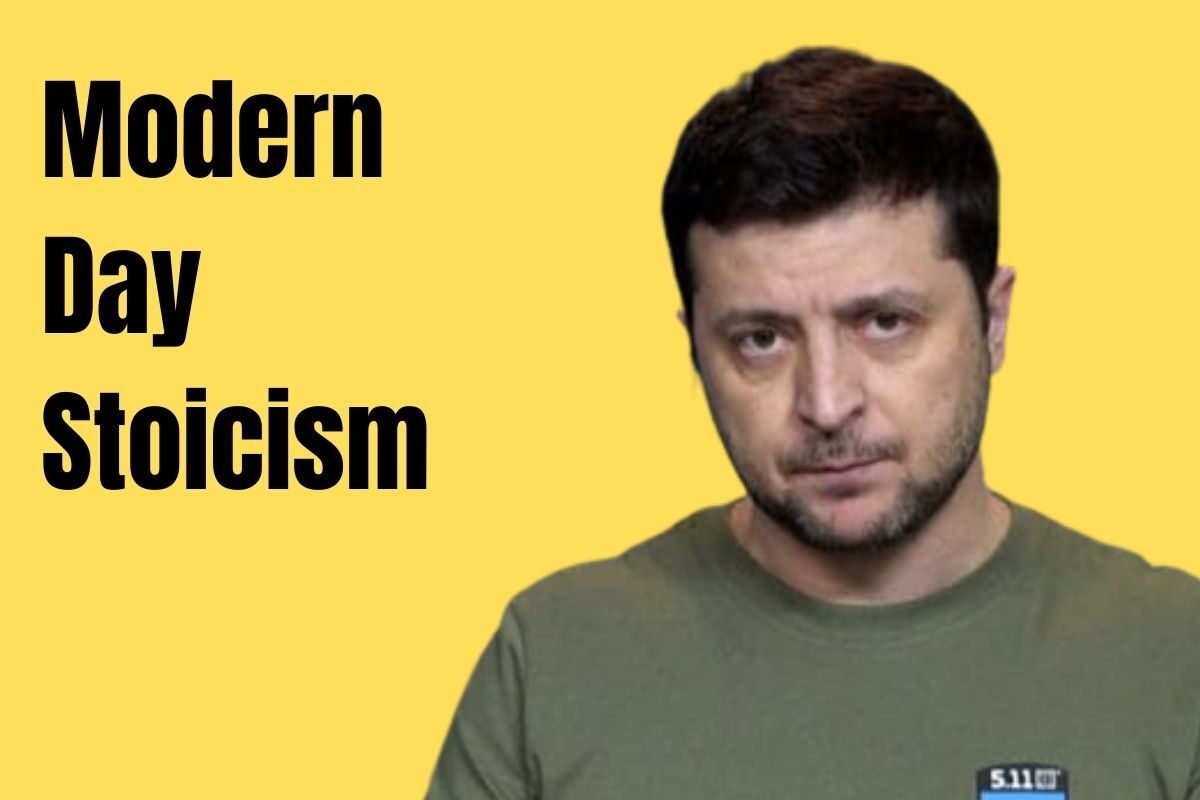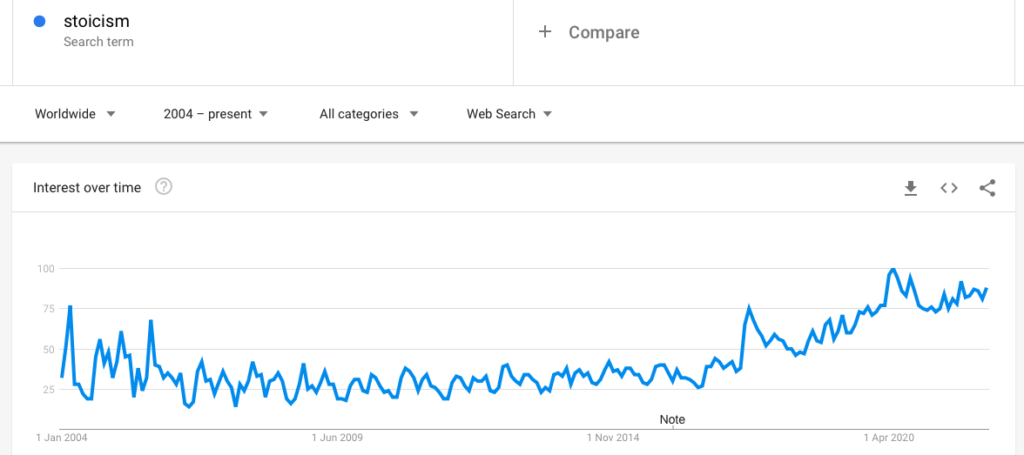The Russian invasion of Ukraine is one of the most significant events of recent times. Unlike the other conflicts, it has caught the imagination of a wider segment of population. Of course, the Eurocentric bias is evident in the reporting and reactions on all forms of media. But the one thing which cannot be missed is the visible resilience and stoicism of President Zelensky, the 44 year old Ukrainian head of state and “Target Number One” of the Russian forces.
A professional actor turned politician, his calm confidence, his anger towards the Rest of the World and the belief in his own people have won him praise across the board. Also, he has not shied away from media and also taken to direct engagement with the world via his vlogs. His refusal to be evacuated and stay put has boosted the morale of his citizens and provided hope. Professor Adam Grant has called him a “lion protecting his pride”. To me, he seems like an embodiment of a modern day stoic.

Stoicism is perhaps amongst one of the more popular schools of Greek philosophy. It is also one quite misunderstood. Common ideas associated with stoicism include repressing one’s true emotions and adopting a sombre exterior. Stoicism has also gets a bad rap for being an excuse to avoid dealing with emotions and avoid dialogue. However, it holds great practical value in everyday life. But most importantly, it is not just a collection of ideas but a set of practical exercises which helps one to practice what one preaches.
Central Ideas of Stoicism
For the uninitiated, here’s a look at some key ideas of Stoicism.

Control What You Can:
The evident interest in Stoicism is justified by the great uncertainty that we face in our everyday life. Stoicism directs one to focus all efforts on controllable factors. Professor of Philosophy, and a student of Stoicism, Massimo Pigiulici elucidates this in his book – Think Like A Stoic. He says that for instance, getting promoted at a job is not entirely up to you or your efforts. There are many factors which influence that decision which are not in your control. And thus deriving confidence in your own abilities is the way of the Stoic. Accepting this ‘dichotomy of control’ therefore helps to lead life with respect and dignity. This also allows you to move on with life. This idea is also very similar to the practice of Dharma, as explained in the Bhagavad Gita.
The Absolute Worst:
The teachings of the Stoic philosophers are not simply abstract ideas. They are based on reflections on real life events, some more disturbing than the others. Marcus Aurelius for instance, lost many of his children to death even while enjoying supremacy in the battlefield. The idea of imagining the worst case possible – premeditatio malorum – helps to mentally prepare for any eventuality. This pre-mortem analysis serves as an ideal tool to avoid being blindsided by disappointment and sometimes defeat. Accepting that the war may end terribly, Zelensky has now started to work with his partners to create a strong front against Russia.
Reflection:
Writing down your thoughts help you to clear out your mind. Transferring ideas, anger, frustration, sadness onto paper helps to look at them objectively. They allow you to feel them fully. Purposive reflection helps in crystallising lessons from them. Oftentimes we are so embroiled in the anger that an event or a person causes that we miss out on the opportunity to learn from them. Maintaining a journal helps, writing something in it everyday helps even more.
As the world looks on at the Kremlin to do the right thing, President Zelensky is seen mobilising all resources to put up a brave fight. Irrespective of how the new few weeks turn out, Zelensky will go down in history as a modern day, inspirational Stoic.
Some Resources:
Books:
The three classics
- Meditations: Marcus Aurelius
- Letters from a Stoic – Seneca
- Discourses and Selected Writings – Epictetus
The classics are a great way to understand the crux of stoic philosophy. It always helps to study the classics as it allows us to form our own opinions. While other writers try to distil the same ideas in a more accessible form, I still urge you to read the classics.
Recent Publications:
- Think Like a Stoic – Massimo Piguilici
- A Guide to the Good Life – William B Irvine
- Books by Ryan Holiday
- Stanford Encyclopedia on Philosophy page on Stoicism: https://plato.stanford.edu/entries/stoicism/
Videos: